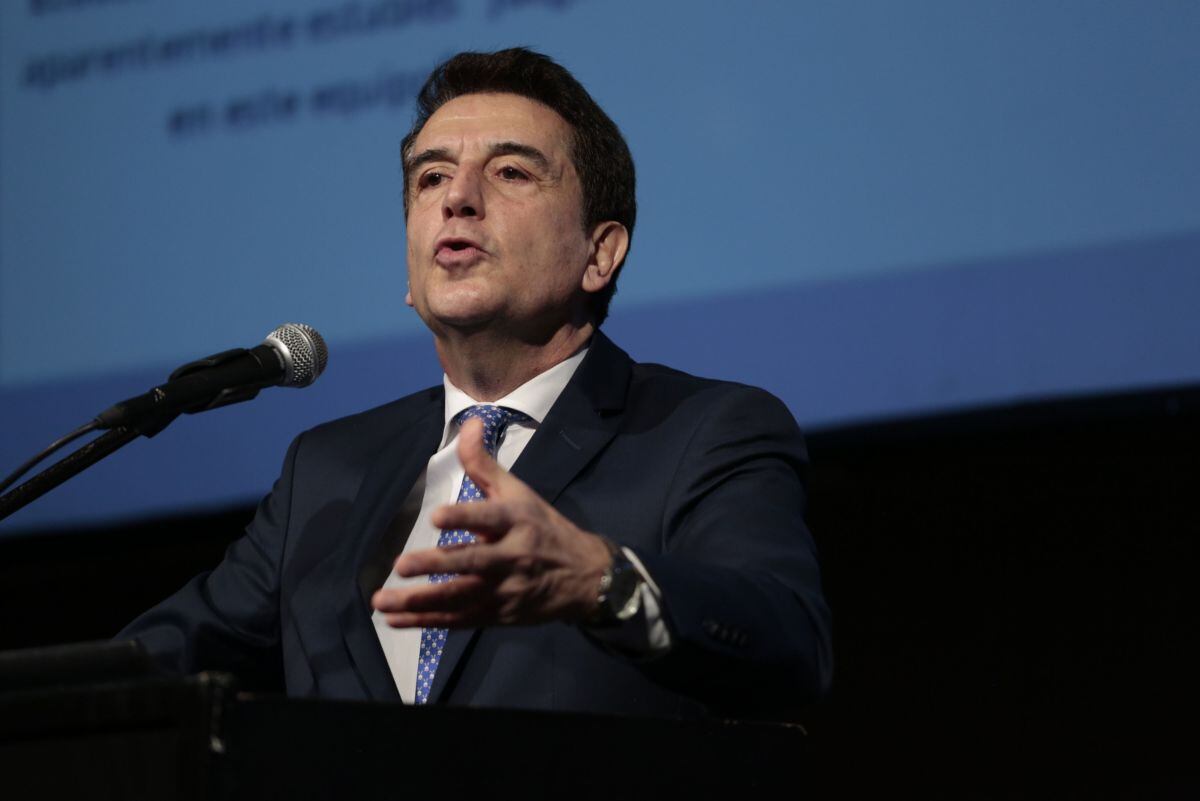
“We are not interested in hot money in Argentina”, said Carlos Melconian, director of the IERAL think tank, in an interview from his office in Buenos Aires. “A flow of capital that generates quick profits and is confused with the element of trust, we are not interested in.”
Melconian, who previously headed Argentina’s state-owned Banco de la Nación, is drawing up an economic plan for the next government that would address the country’s many problems, ranging from 100% inflation and a web of currency controls to anti-union labor laws. companies and poverty close to 40%. His plan would also try to avoid some of the early policy mistakes of the last market-oriented administration of Mauricio Macri, who lost the 2019 election to President Alberto Fernández after early reforms failed to avert a new crisis.
Although the specific details have not yet been made public, some key policies are ruled out in Melconian’s plan for the start of a new government. Inflation targeting and a freely floating exchange rate — two political pillars of Macri’s first days in office in late 2015 — cannot happen after the next government takes the reins, Melconian says, calling such measures “inadequate”.
READ ALSO: Exports from Chile and South Africa could gain ground on Peruvian grapes, why?
It proposes that the new government force investors to hold Argentine assets for a certain time before selling them, to avoid the rapid fluctuations that helped fuel market volatility during the Macri government, or the “hot money”, often associated with quick profits and speculation stemming from wild currency movements. He did not define exactly how long investors should wait.
After initial success in stabilizing the economy, settling with reluctant creditors, returning to global bond markets, and removing onerous controls, the Macri government suffered a crisis of confidence midway through its four-year term and was forced to turn to the International Monetary Fund for a record $56 billion bailout. After Macri was defeated in the 2019 primaries, he had to reimpose some controls as investors rushed money out of the country.
It should be noted that there is no “hot money” in Argentina at this time due to strict exchange controls. During the pandemic, the Fernández government defaulted and then restructured its debt, but with current yields of around 20% on dollar bonds, the country is effectively locked out of international markets. The appetite of investors to return to Argentine assets depends to a large extent on the economic policies of the next government.
More broadly, Melconian sees a new economic era for a crisis-prone Argentina after this election cycle.
“It is said of politics that a political cycle is ending because it is the end of populism,” Malconian said. “We say that a cycle of economic organization and format in the Argentine economy is ending that does not give for more.”
The end of the Fernández government and the current economic model will not be easy.
Melconian forecasts 100% annual inflation from January until at least the primary in August, with more reason to think it will go up than down.
first candidates
Along with what he estimates are 60 to 70 other great thinkers — economists, lawyers, tax experts — some of whom are also contenders for future cabinet posts, Melconian is one of the architects behind the plan he describes as “capitalist, western and progressive”.
At first, “Argentina is not going to face what it does with the stocks”, Held. “Argentina also has to face what it does with the way of doing business”.
The local press often associates Melconian with Patricia Bullrich, the conservative leader of the opposition coalition expected to run for president. The mayor of Buenos Aires, Horacio Rodríguez Larreta, considered more centrist than Bullrich, is also preparing his candidacy. The liberal economist Javier Milei, who presents himself as anti-system, is also highlighted in the latest polls.
Melconian insists that his plan is apolitical and not linked to any opposition candidate. But with Fernández’s popularity plummeting and after Vice President Cristina Fernández de Kirchner declared that she will not be a candidate, Melconian sees an opportunity for the opposition to win next year’s elections.
“It is an opposition that absolutely continues to have a penalty in its favor without a goalkeeper,” says Melconian.
Source: Gestion
Ricardo is a renowned author and journalist, known for his exceptional writing on top-news stories. He currently works as a writer at the 247 News Agency, where he is known for his ability to deliver breaking news and insightful analysis on the most pressing issues of the day.











